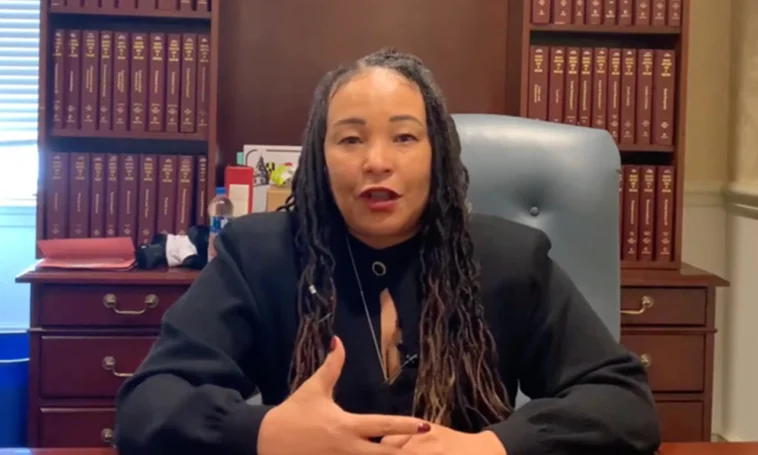Sen. Jill Carter, D-Baltimore City, sponsored the Maryland Reparations Act of 2024, calling for a “certain amount of revenue from the State individual income tax and Maryland estate tax be distributed to the Community Reinvestment and Repair Fund.”
The bill, introduced by Sen. Carter, a Democrat representing Baltimore City, underscores the need to confront the enduring impacts of systemic racism and socioeconomic disparities that have disproportionately affected communities of color, particularly in Maryland.
The essence of the Maryland Reparations Act lies in its commitment to leveraging tax revenue to fund the Community Reinvestment and Repair Fund. This fund, established in 2023, serves as a mechanism to redress the harms inflicted by the disproportionate enforcement of cannabis prohibition, particularly on low-income individuals and communities of color.
By directing revenue from the State individual income tax and Maryland estate tax to this fund, Sen. Carter’s bill seeks to prioritize the needs of those most impacted by historical injustices, echoing broader calls for reparative justice and equitable redistribution of resources.
At the heart of Sen. Carter’s legislative proposal is the recognition of the devastating consequences of the war on drugs, which has long been characterized by discriminatory enforcement practices targeting minority and low-income communities.
By channeling resources into the Community Reinvestment and Repair Fund, the bill aims to address the systemic disinvestment and socio-economic marginalization that have perpetuated cycles of poverty and inequality.
The bill’s provisions reflect a multifaceted approach to tax reform and fund allocation. Notably, it proposes an additional State individual income tax rate on the net capital gains of individuals, thereby targeting wealth accumulation and addressing income disparities.
By adjusting rates and rate brackets under the State income tax, the bill seeks to ensure a fair and progressive taxation system that promotes economic equity and social justice.
Furthermore, the Maryland Reparations Act advocates for raising the rate of sales and use tax for cannabis from 9% to 14%. This initiative not only generates additional revenue but also acknowledges the role of cannabis legalization in the broader discourse on racial and social justice. Sen. Carter’s emphasis on cannabis taxation reflects a nuanced understanding of the intersections between drug policy, criminal justice reform, and reparations, highlighting the need for holistic approaches to address historical injustices.
Sen. Carter’s advocacy for the immediate enactment of the bill underscores its urgency in addressing persistent inequities and advancing reparative measures. The call for prompt action reflects a commitment to transformative change and accountability, signaling a departure from passive acknowledgment of injustices towards proactive redressal and restitution.
However, the Maryland Reparations Act is not without its challenges and controversies. Critics may argue against tax increases, citing potential economic repercussions and concerns about fiscal responsibility. Furthermore, questions regarding the allocation and administration of funds may arise, necessitating transparent mechanisms for accountability and community involvement.




Join the Community and Be a Part of the Conversation
You must be logged in or registered to post a comment.